Regarding smartphones, Samsung Galaxy and iPhone are two of the most popular and highly regarded options on the market. Both offer sleek designs, powerful features, and advanced technologies that make our daily lives easier and more connected.
However, deciding between the two can be daunting, as they have unique strengths and weaknesses. In this article, we will compare Samsung Galaxy vs. iPhone in several key areas, such as design, performance, camera, battery life, price, and more, to help you determine which is right. By the end of this article, you’ll better understand the pros and cons of each device and be able to make an informed decision that meets your individual needs and preferences.
Table of Contents
Samsung Galaxy vs. iPhone Pros and Cons
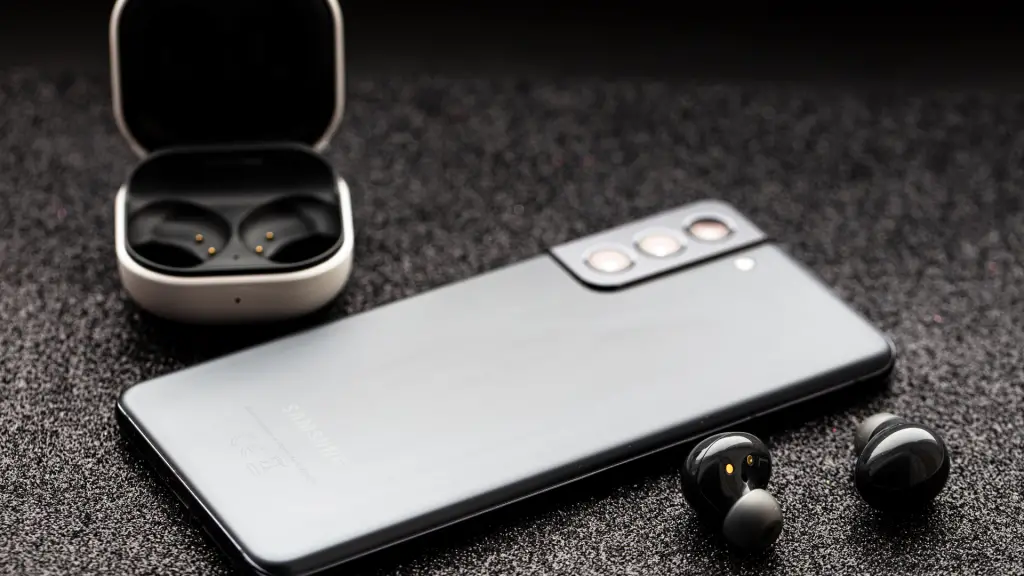
Samsung Galaxy Pros:
- Customization options: Android provides more customization options than iOS, allowing users to personalize their devices more extensively.
- Larger displays: Samsung Galaxy devices typically have larger displays than iPhones, making them great for media consumption and productivity.
- Expandable storage: Many Samsung Galaxy devices allow for expandable storage via microSD cards, which can be a major advantage for users who need more storage.
- Headphone jack: Unlike recent iPhones, most Samsung Galaxy devices still have a headphone jack, which can be a pro for users who prefer wired headphones.
- Variety of models: Samsung offers a wide range of Galaxy models at various price points, allowing users to choose a device that fits their budget and needs.
Samsung Galaxy Cons:
- Bloatware: Samsung Galaxy devices come with pre-installed apps that some users may find unnecessary or unwanted.
- Slower software updates: Samsung devices may take longer to receive the latest software updates than iPhones due to fragmentation in the Android ecosystem.
- Limited software support: Samsung provides software updates for a limited period of time, which can leave older devices without access to the latest features and security updates.
- Inconsistent camera quality: While Samsung Galaxy cameras are generally good, they can be inconsistent across different models and in low-light situations.
- Battery life: Some Samsung Galaxy devices may have shorter battery life than their iPhone counterparts.
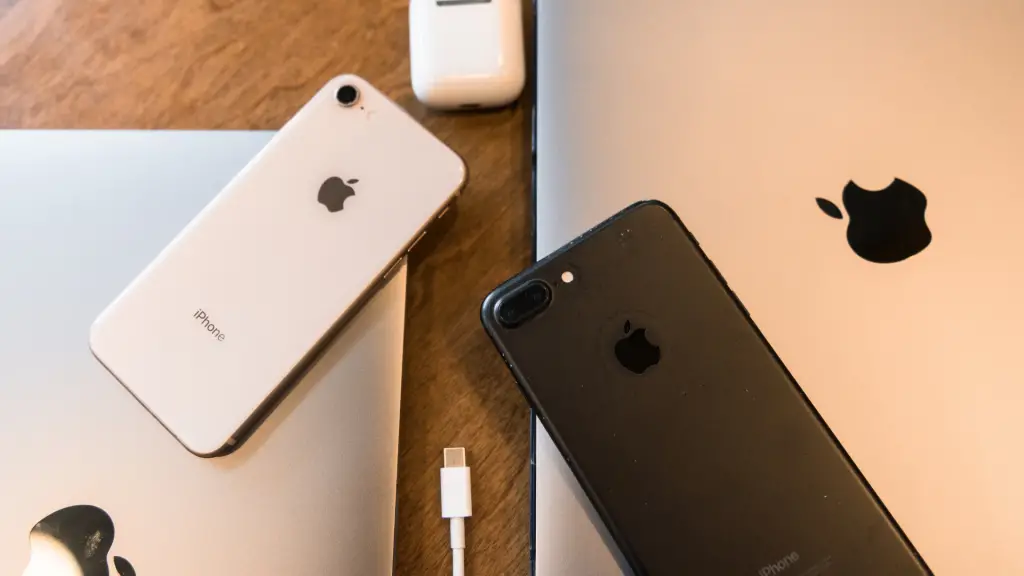
iPhone Pros:
- Seamless integration: Apple devices are known for their seamless integration with one another, making them a great choice for users who own multiple Apple products.
- Consistent software updates: Apple provides software updates to its devices longer than Android manufacturers, ensuring users can access the latest features and security updates.
- Strong privacy and security: Apple prioritizes privacy and security in its devices, providing users with peace of mind that their data is protected.
- User-friendly interface: iPhones are known for their user-friendly interface and ease of use, making them a great choice for beginners.
- Quality camera: iPhones are known for their quality cameras, which consistently produce great photos and videos.
iPhone Cons:
- Limited customization: iPhones offer fewer customization options than Android devices, which may be a con for users who want to personalize their devices.
- IPhones tend to be more expensive than Samsung Galaxy devices, which can be a barrier for some users.
- Limited models: Apple offers a more limited range of iPhone models than Samsung does with its Galaxy devices, which can limit users’ options.
- No headphone jack: Most recent iPhones do not have a headphone jack, which may be a con for users who prefer wired headphones.
- Limited storage: iPhones do not have expandable storage options, which can be a disadvantage for users who need more storage.
Design and build quality
Design and build quality are important factors to consider when choosing a smartphone. Both Samsung Galaxy and iPhone devices have unique designs and build quality that set them apart. Samsung Galaxy devices typically feature larger screens and thinner bezels, which can offer a more immersive viewing experience.
They also come in various materials, including glass and metal, which can provide a premium look and feel. Samsung devices are also known for their durability, with many devices featuring water and dust resistance ratings. Additionally, Samsung Galaxy devices often feature ergonomic designs that make them more comfortable to hold and use for extended periods.
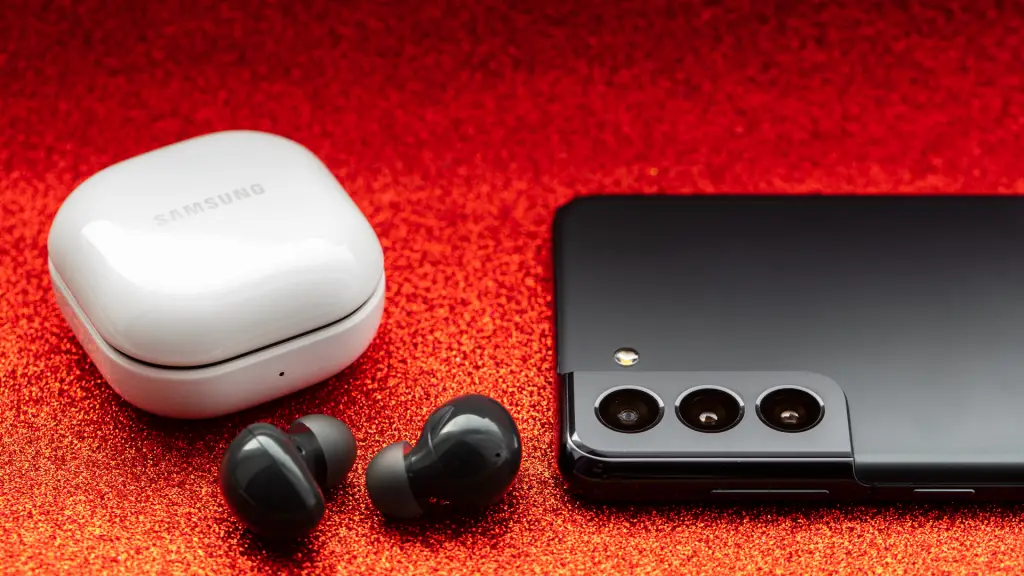
On the other hand, iPhones are known for their sleek and minimalist design, emphasizing simplicity and elegance. They typically feature smaller screens and more compact designs, making them more portable. iPhones are also known for their high-quality build materials, with devices featuring materials such as glass and aluminum. Additionally, Apple devices are known for their attention to detail and precision, often featuring tight tolerances and high-quality finishes.
Ultimately, the choice between Samsung Galaxy and iPhone design and build quality will depend on individual preferences. Those prioritizing a large, immersive screen and durability may prefer Samsung devices. Meanwhile, those who prioritize a sleek, minimalist design, high-quality materials, and attention to detail may prefer iPhones.
Display
Display quality is an important factor to consider when choosing a smartphone. Samsung Galaxy and iPhone devices offer high-quality displays. Samsung devices typically feature larger screens with higher resolutions, which can provide a more immersive viewing experience.
They also often feature OLED technology, offering better color accuracy and deeper blacks than traditional LCDs. Samsung devices also typically offer high brightness levels, making them easier to use in bright sunlight. Additionally, some Samsung devices offer high refresh rates, which can make scrolling and animations smoother.
On the other hand, iPhones are known for their high-quality displays, with devices typically featuring LCD or OLED technology. While iPhone screens may not be as large as those on Samsung devices, they still offer high resolutions and excellent color accuracy.
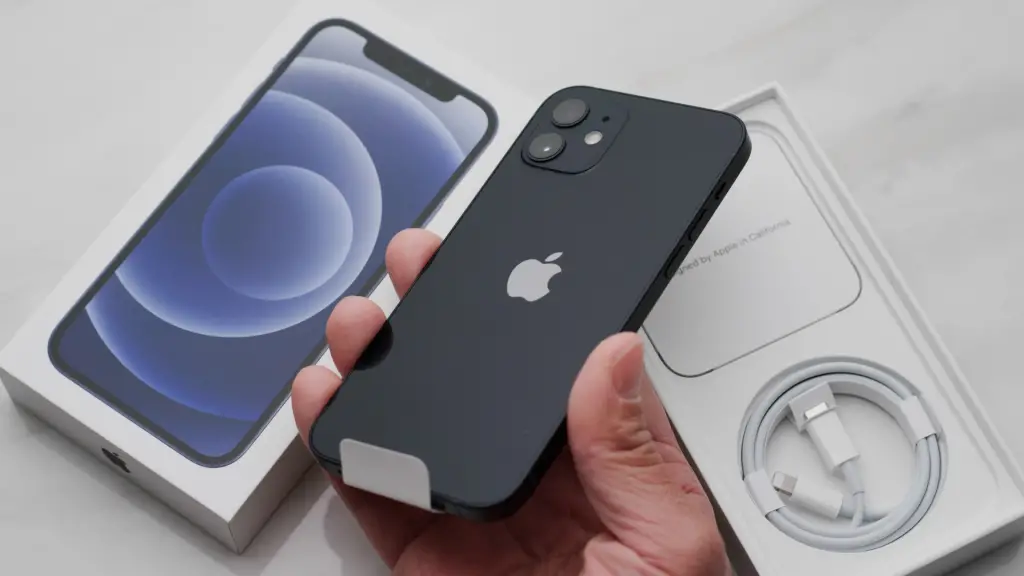
Additionally, some iPhone models feature True Tone technology, which can adjust the display’s color temperature based on the surrounding environment; This can help reduce eye strain and provide a more natural viewing experience.
Ultimately, the choice between Samsung Galaxy and iPhone displays will depend on individual needs and preferences. Those who prioritize a large, high-resolution screen with deep blacks and excellent color accuracy may prefer Samsung devices. Meanwhile, those who prioritize a high-quality display with features such as True Tone technology may prefer iPhones.
iPhone performance vs. Samsung Galaxy performance
Performance is a crucial factor to consider when choosing a smartphone. Both Samsung Galaxy and iPhone devices offer powerful performance capabilities.
Samsung Galaxy devices typically feature powerful processors, with many models offering the latest Qualcomm Snapdragon or Samsung Exynos chipsets. They also often feature large amounts of RAM, which can help with multitasking and app switching.
Additionally, Samsung devices often offer powerful GPU performance, which can provide a smooth and lag-free gaming experience. Regarding benchmark scores, Samsung devices typically score highly, often outperforming iPhones in certain tests.
On the other hand, iPhones are known for their high-performance capabilities, with devices typically featuring Apple’s own A-series chipsets. These chipsets are often optimized for iOS, providing a smooth and responsive experience.
Additionally, iPhones typically feature lower amounts of RAM than Samsung devices, but the optimized hardware and software often make up for this. iPhones also offer powerful GPU performance, making them suitable for demanding mobile games. In benchmark tests, iPhones typically score highly, often outperforming Samsung devices in certain tests.
Ultimately, the choice between Samsung Galaxy and iPhone performance will depend on individual needs and preferences. Those who prioritize powerful processing power, large amounts of RAM, and strong GPU performance may prefer Samsung devices. Meanwhile, those who prioritize optimized hardware and software performance may prefer iPhones.
Battery life
Battery life: Evaluating the battery life of both devices, including battery capacity, fast charging capabilities, and battery optimization features.
Battery life is a critical factor to consider when choosing a smartphone. Both Samsung Galaxy and iPhone devices offer impressive battery life capabilities. In some models, Samsung Galaxy devices typically feature large battery capacities ranging from 4,000mAh to 5,000mAh or higher. They also often feature fast charging capabilities, allowing users to charge their devices in a short amount of time quickly. Additionally, Samsung devices often feature battery optimization features, such as power-saving modes, that can help extend battery life.
On the other hand, iPhones are also known for their long battery life. They typically feature battery capacities ranging from 2,800mAh to 3,500mAh in the latest models. iPhones also feature fast charging capabilities, allowing users to charge their devices in a short amount of time quickly. Additionally, iPhones feature battery optimization features, such as Low Power Mode, that can help extend battery life.
Ultimately, the choice between Samsung Galaxy and iPhone battery life will depend on individual needs and preferences. Those prioritizing larger battery capacities and fast charging capabilities may prefer Samsung devices. Meanwhile, those prioritizing long battery life and optimization features may prefer iPhones. It’s worth noting that battery life can vary depending on usage patterns, so it’s important to consider individual usage habits when choosing a device.
Camera
Both iPhone and Samsung Galaxy devices offer impressive camera systems, but they differ in terms of the number of lenses, megapixel count, aperture, and image processing capabilities.
Regarding lens count, Samsung Galaxy devices typically feature multiple lenses, including a standard, wide-angle, and telephoto lens, allowing users to capture various shots. In contrast, iPhones usually feature a dual-lens system, with one standard and one telephoto lens in the latest models.
When it comes to megapixel counts, Samsung Galaxy devices often have higher megapixel counts than iPhones, with some models featuring up to 108 megapixels in the main camera. Meanwhile, iPhones usually feature 12-16 megapixels in the main camera.
Aperture is another important factor in camera quality, with a wider aperture allowing for better low-light performance. Samsung Galaxy devices typically feature wider apertures, ranging from f/1.5 to f/1.8, while iPhones usually feature apertures ranging from f/1.8 to f/2.2.
Image processing capabilities are also an important factor in camera performance. Samsung Galaxy and iPhone devices are known for their advanced image processing capabilities. Samsung’s cameras feature features like Scene Optimizer, which can detect and optimize settings for different scenes, and Super Slow-mo, which can capture slow-motion video at up to 960 frames per second. iPhones, meanwhile, feature advanced image processing capabilities that can produce stunning images and videos, such as Night mode, which can capture low-light photos with stunning detail.
Ultimately, the choice between Samsung Galaxy and iPhone camera systems will depend on individual needs and preferences. Those who prioritize versatility and high megapixel count may prefer Samsung devices. In contrast, those prioritizing image quality and advanced processing capabilities may prefer iPhones. It’s noteworthy that camera quality can vary depending on individual usage habits and lighting conditions.
Operating system
The iPhone runs on Apple’s iOS operating system, while Samsung Galaxy devices run on Android. Both operating systems have their own unique user experience and features.
- One advantage of the Android operating system is its customization options. Users can customize their home screens, app icons, and other settings to their liking. The Android operating system also allows for more flexible file management and sharing.
- However, iOS has advantages, including a more consistent user experience across devices and a more streamlined interface. iOS also tends to receive updates more quickly and consistently than Android.
- In terms of the app ecosystem, both operating systems offer access to a wide range of apps. However, iOS generally has a more curated app selection focusing on quality and security. On the other hand, Android offers more customization options and flexibility in app downloads.
- Both operating systems offer a variety of security features, such as biometric authentication and app permissions. However, iOS is generally more secure due to its closed system and stricter app review process.
- The choice between iOS and Android comes down to personal preference and priorities. Those who prioritize customization and flexibility may prefer Android. In contrast, those prioritizing security and a consistent user experience may prefer iOS. It’s worth noting that switching between operating systems can require a learning curve, so it’s important to weigh the pros and cons before making a decision.
Price and value for money
The price of iPhone devices tends to be higher than that of Samsung Galaxy devices. The base model of the latest iPhone is usually priced around $699 to $799. In contrast, the base model of the latest Samsung Galaxy device is usually priced around $499 to $699. However, it’s worth noting that both Apple and Samsung offer a range of devices at different price points so the exact price comparison can vary depending on the specific models being compared.
When evaluating value for money, it’s important to consider not only the price but also the features and capabilities of the device. For example, the higher-end variants of both iPhone and Samsung Galaxy devices offer additional features such as larger storage capacity, better camera systems, and higher-quality displays.
It’s also worth considering the long-term value of the device. Apple tends to provide longer software support for its devices. Some iPhone models receive software updates for up to five years after release. Samsung devices typically receive software updates up to three years after release.
Ultimately, the choice between iPhone and Samsung Galaxy devices comes down to personal preference and priorities. Those prioritizing a consistent user experience and longer software support may prefer iPhone. In contrast, those prioritizing customization options and a more affordable price point may prefer Samsung Galaxy devices. It’s important to weigh the pros and cons of each device and consider factors beyond just the initial price tag when making a purchasing decision.
Accessories and ecosystem
Both Apple and Samsung offer a range of accessories and peripherals for their devices, including cases, chargers, and wireless headphones.
- Apple’s accessories are more expensive than Samsung’s, but they are also higher quality and better integrated with the iPhone’s software and hardware.
- Samsung devices are compatible with a wider range of third-party accessories, which may make it easier to find affordable and personalized options. However, these third-party accessories may not always be of the same quality as those produced by Apple or Samsung.
- In terms of ecosystem, Apple’s ecosystem is more tightly integrated and consistent across its devices; This can make it easier to switch between Apple devices and use them seamlessly together. Apple also has a strong app ecosystem, with a wide range of high-quality apps in its App Store.
- Samsung’s ecosystem is more open and flexible, which can make it easier to customize and personalize the user experience. Samsung also has a strong app ecosystem, with many popular apps in the Google Play Store.
- Ultimately, the choice between iPhone and Samsung Galaxy devices comes down to personal preference and priorities. Those who value a tightly integrated and consistent ecosystem may prefer iPhone, while those who value flexibility and customization options may prefer Samsung Galaxy devices. It’s important to consider not only the devices but also the accessories and ecosystem when purchasing.
User reviews and ratings
User reviews and ratings can provide valuable insights into common pain points and frequently praised features for both iPhone and Samsung Galaxy devices. IPhone and Samsung Galaxy devices generally receive positive reviews and high user ratings. However, there may be differences in the specific areas that users praise or criticize for each device.
Common pain points for iPhone users include battery life, lack of customization options, and the high cost of Apple accessories. However, users frequently praise the overall user experience, camera quality, and software updates.
Common pain points for Samsung Galaxy users include software bugs, slow updates, bloatware, and a cluttered user interface. However, users frequently praise the customization options, screen quality, and value for money.
It’s important to remember that user reviews and ratings may not always be completely objective or representative of the entire user base. However, they can still provide useful insights into overall user satisfaction and commonly encountered issues.
Ultimately, it’s important to consider various factors when choosing between iPhone and Samsung Galaxy devices, including personal preferences, budget, specific needs, and use cases. User reviews and ratings can be helpful sources of information but should not be the only factor considered.
Brand loyalty and personal preference
Brand loyalty can be a powerful force when it comes to choosing between Samsung Galaxy and iPhone devices. Many users may strongly attach to one brand based on past experiences, marketing, advertising, or other factors.
However, it’s important to remember that brand loyalty alone should not be the sole determining factor in choosing a smartphone. Significant differences in features, performance, and overall user experience may exist between devices from different brands.
Personal preferences can also play a major role in choosing between Samsung Galaxy and iPhone devices. For example, some users may prefer the flexibility and customization options of Android, while others may prefer the streamlined and cohesive experience of iOS.
Other factors that may influence personal preference include design and aesthetics, camera quality, battery life, and app availability.
To make an informed decision based on individual needs and preferences, it’s important to consider a range of factors and prioritize the ones most important to you; This may involve doing research on specific features and specifications, as well as testing out devices in person to get a feel for their user experience.
It’s also important to consider your budget when choosing between Samsung Galaxy and iPhone devices, as prices can vary significantly depending on the specific model and features.
Ultimately, the decision between Samsung Galaxy and iPhone devices is a personal one that depends on a wide range of individual factors. By taking the time to consider your needs and preferences and researching and testing out devices, you can make an informed decision that meets your specific needs and provides the best overall user experience.
Last thought
In conclusion, the decision between Samsung Galaxy and iPhone ultimately comes down to personal preference and individual needs. Both devices have strengths and weaknesses, and evaluating them is important based on the factors that matter most to you.
By considering factors such as design and build quality, display, performance, battery life, camera, operating system, price and value for money, accessories, ecosystem, and user reviews and ratings, you can make an informed decision that meets your unique needs and preferences. Whether you’re a die-hard Samsung or iPhone fan or are open to trying something new, there’s a device out there that will meet your needs and exceed your expectations.

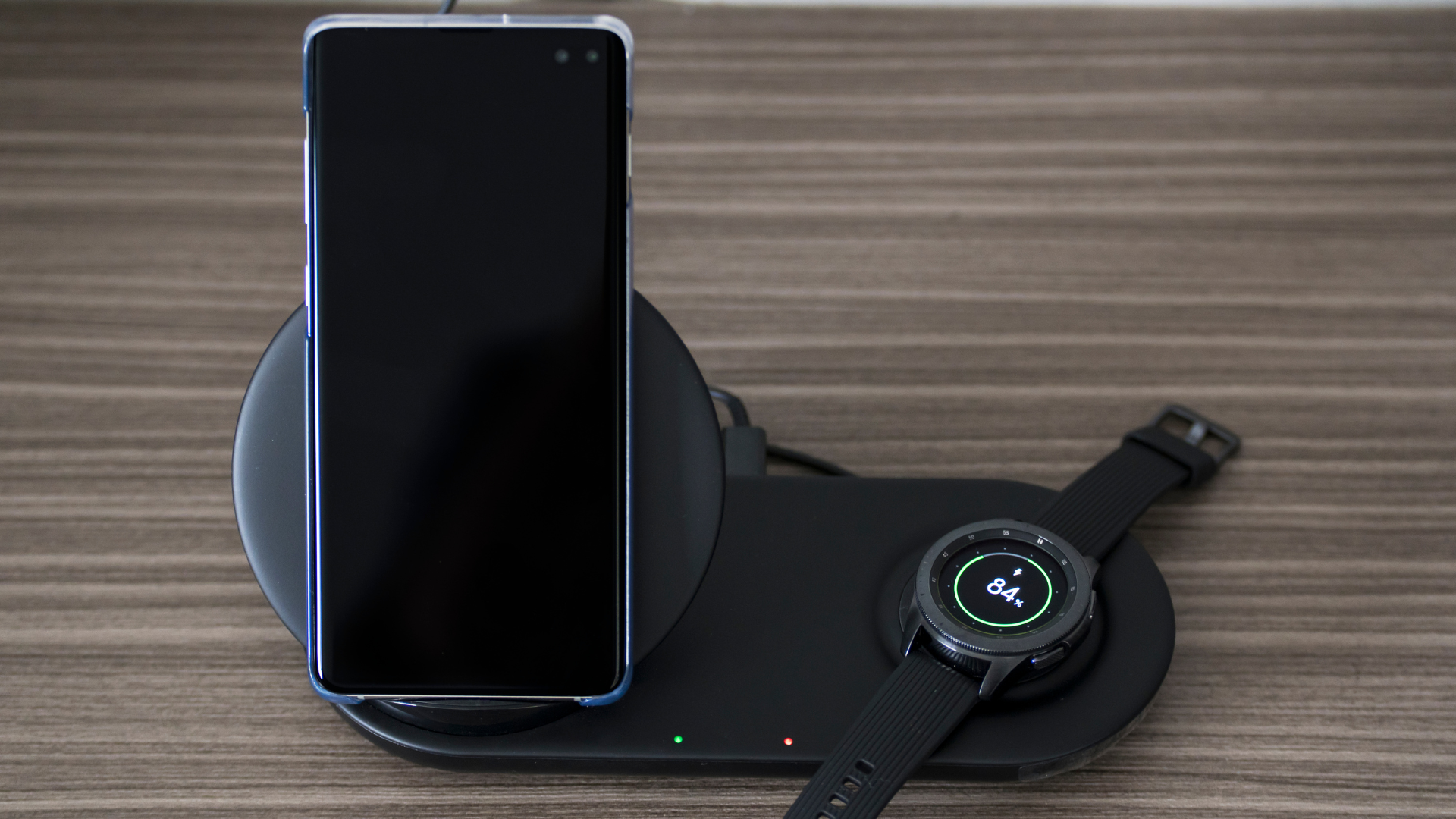

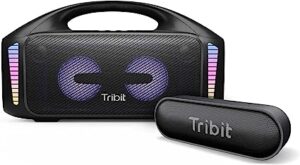

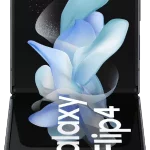
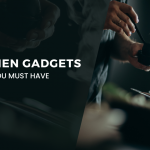
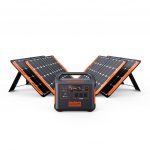

[…] hardware components in your laptop might consume more power than newer, more efficient parts. Upgrading your RAM or switching to a solid-state drive […]